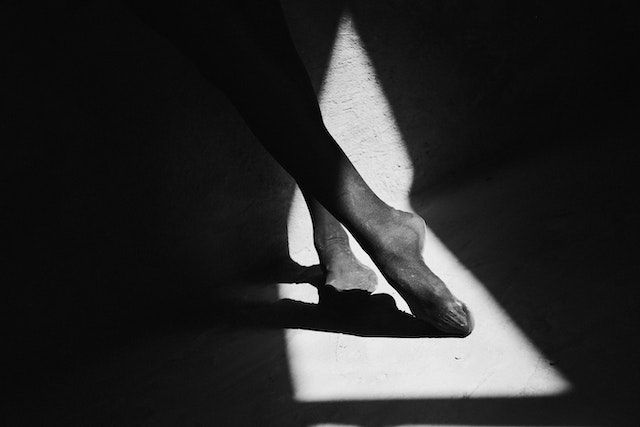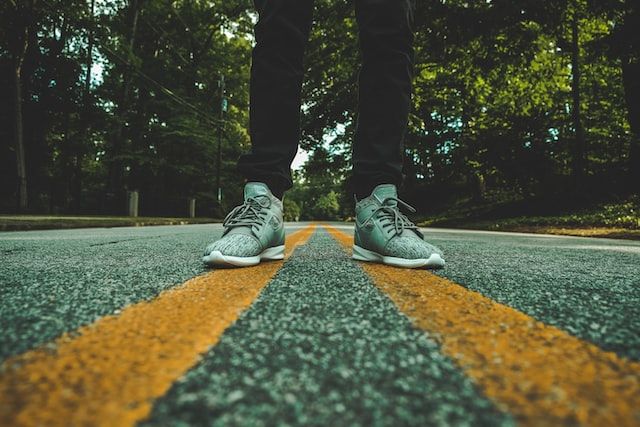I was thrilled. Not only would I get the opportunity to have an experience that felt familiar, but I’d also get to run away from reality. It seemed like a double win, but was it?

Written by Kui Mwai
One of the first loves of my life was moving. I did so quite a bit in my youth, thanks to my dad’s job — we called a place home for a few years at most. While some kids would be traumatised at the thought of leaving everything they knew to live in a new country, I relished in it. A theatrical kid at heart, I found the drama of leaving and the newness of it all exhilarating. It made me feel important and special.
Though I’m still allured by the idea of starting fresh in a foreign land, I learned firsthand that when you’re an adult, it’s not as glamorous. Moving as a child is fun — your parents handle the details and you’re handed a new life.
But when you’re the adult in charge of those details, it’s a different story, which I realized when I moved to Paris in 2017. I was a lost, recent college graduate who had no idea what she was doing. After getting rejected from job after job, I was about to throw in the towel when I stumbled upon an opportunity to work as an Au Pair in Paris.
I was thrilled. Not only would I get the opportunity to have an experience that felt familiar, but I’d also get to run away from reality. It seemed like a double win, but was it?
Twice, before travelling, I spoke to the upper-class Parisian parents I would be working for. They hired me and before I could say “allons-y”, I was en route to France.
Looking back, two short conversations were not enough to consider moving in with people I didn’t know, in a country I’d only visited once and didn’t even speak their language. The adventure of it seduced me, though.
It was a sparkling August morning when I arrived in Paris. All of the clichés are true — the city has an undeniable magic. The sun almost exclusively cracks through centuries-old limestone buildings, creating a spotlight that feels like it’s shining just on you.
The magic of Paris started to shatter when I saw where I would be living. The family I worked for lived in a stunning apartment. But that’s not where I lived. I stayed in the servants' quarters, which in Parisian buildings are located on the 10th or 11th floor (It’s important to note that because most Parisian buildings were built in the 18th century, few have elevators. Mine did not.)

My “quarters” were a small bedroom with a twin size bed, sink, and a small cabinet. I had 15 or so neighbours, and we shared a common shower and toilet. When I finally got my suitcases up to the room, I took stock of my new home. At least I could see the top of the Eiffel Tower from my window. That was something.
My neighbours were a colourful group, none of whom spoke English, and, as most Parisians do, hated Americans. One of my neighbours particularly hated me. She lived opposite me and was at least a hundred-years-old from my guess. She required extreme quiet, and whenever I made any noise, she banged on my door and screamed at me. I had no idea what she was saying, but I imagine it was racially-charged.
It may seem that an older woman is an easy adversary, but she was a force to be reckoned with. When she lunged at me one evening, I started to believe she could hurt me physically. She became one of the biggest triggers of my anxiety, and contributed to the breakdown of my mental health. So did the revolving door of people who stayed on the floor. A good amount of the rooms were Airbnbs, so, young travellers were always coming in and going out. Sometimes there were young men looking to have a good time. I once bumped into a group of them at night and they looked at me like hungry predators eyeing their prey. That’s when I realized I wasn’t safe in my home.
My fear grew over time, and I soon stopped leaving my room in the evening. Not even to go to the bathroom. Instead, I’d pee into a plastic container, opting to sleep with the smell of rancid waste over a potential assault.
The strain exerted by my day-to-day life also furthered the deterioration of my mental state. My life became all about the children I nannied, yet the money I made was not nearly enough to do anything in Paris. I didn't take classes (because I was broke), go out to bars (because I was broke), or join any clubs (because, you guessed it, I was broke).
I had a panic attack every day. I remember weeping in a park one day, unable to reach anyone around me or my loved ones back home, virtually. The world sped ahead while I was there, stuck in a shell of my former self.
I spent a lot of time thinking about my parents when I was in Paris. I thought about them in their mid-20s, leaving everything they knew in Kenya for the U.S. They must have been so afraid and the amount of courage it took to keep choosing their new life was unfathomable.
After three months I couldn’t do it anymore. I explained to the Parisian parents that I needed to leave, and I returned to Kenya to lick my wounds.
When I reflect on my Parisian experience, all I feel is pride. I used to judge myself harshly for rushing into it, but what an extraordinary thing it is for a 22-year-old without a dollar or a clue to choose a path of solitude over a traditional life path! Now, I know who I am. And whether I keep on moving or stay in Kenya for the rest of my life, that knowledge of self will never change.
***
Kui Mwai is a Kenyan-American writer who's passionate about telling stories underrepresented in the media. After graduating from American University in Washington, D.C., she started her writing career, freelancing for several publications. She currently holds a news writer position at Blavity, while writing for publications like Bustle, Refinery29, Cosmopolitan UK, ELLE, Well + Good, and more.





